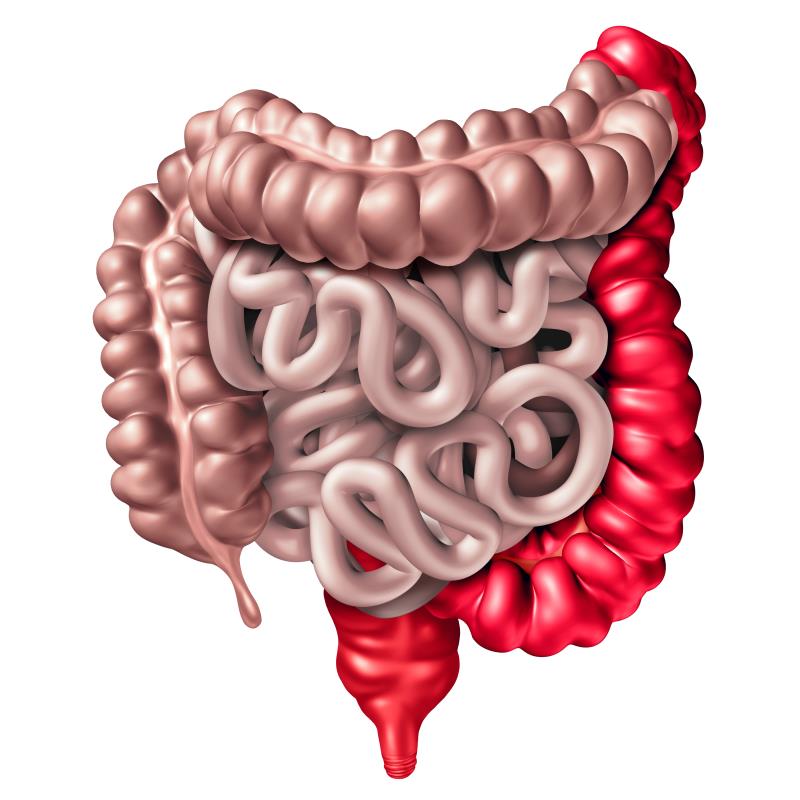
The TURANDOT* and TURANDOT II** studies confirm the efficacy of the monoclonal immunoglobulin G2 anti-MAdCAM-1*** antibody ontamalimab to induce remission in patients with ulcerative colitis (UC).
The 12-week TURANDOT trial comprised 357 patients who were randomized 1:1:1:1:1 to receive subcutaneous ontamalimab 7.5, 22.5, 75, or 225 mg Q4W, or placebo. Following which, patients who completed TURANDOT and discontinued immunosuppressants could enrol in the extension phase, TURANDOT II, which included two open-label phases followed by a 24-week follow-up period (n=330). TURANDOT II participants were randomized 1:1 to receive ontamalimab 75 or 225 mg Q4W for 72 weeks. Dose escalation from 75 to 225 mg was allowed between weeks 8 and 72 should there be exacerbations or lack of response. [AIBD 2019, abstract P081]
At week 4 of TURANDOT, the fraction of patients who achieved clinical remission were greater in the ontamalimab vs the placebo arms, particularly in the 22.5 mg and the 75 mg arms (between-group difference, 11.2 percent, 90 percent confidence interval [CI], 0.4–21.9 and 10.3 percent, 90 percent CI, -0.5 to 20.9, respectively).
At week 8, the fraction of ontamalimab recipients who achieved clinical remission were 19.7, 36.1, 32.4, and 34.3 percent for the 7.5-, 22.5-, 75-, and 225-mg doses, respectively), which continued to improve until week 12 (23.9, 40.3, 36.6, and 25.7 percent, respectively). These values were greater than those who achieved remission in the placebo arms (19.2 and 16.4 percent for weeks 8 and 12, respectively).
Among previous placebo recipients in TURANDOT II (n=68), the proportion of participants achieving clinical remission rapidly increased from baseline to weeks 4, 8, and 12 for both 75-mg (from 24.2 percent to 48.5, 51.5, and 63.6 percent, respectively) and 225-mg doses (from 11.4 percent to 42.9, 42.9, and 57.1 percent, respectively).
Rapid, robust effect
Evidence has shown the efficacy of ontamalimab in inducing endoscopic remission in patients with moderate-to-severe UC after 12 weeks of treatment. [Lancet 2017;390:135-144] However, its effects on symptomatic remission at earlier timepoints remain unknown, noted the researchers.
“[The aim of UC treatment is] to induce and maintain both endoscopic and symptomatic remission. While assessment of endoscopic remission is limited by timing of endoscopy, symptomatic remission can be assessed at any clinical visit, thus potentially allowing a more granular assessment of the time to onset of efficacy of a therapeutic agent,” said the researchers.
“[Our study confirms that] the ability of ontamalimab to induce clinical and symptomatic remission is rapid and robust, as shown initially in … TURANDOT, particularly at doses of 22.5 and 75 mg, with differences vs placebo as early as week 4,” said the researchers. “[Moreover, these findings were] confirmed in those who received ontamalimab for the first time in TURANDOT II,” they added.